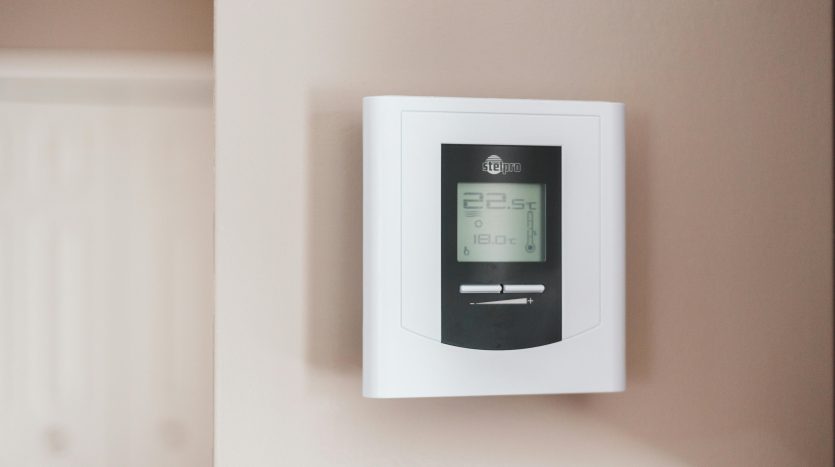How to Improve Energy Efficiency in Your Home
Making your home more energy-efficient is one of the smartest investments you can make as a homeowner. Not only does it help reduce energy bills, but it also increases your property’s value and contributes to a more sustainable environment. Whether you live in a modern apartment or a traditional house, there are several practical steps you can take to enhance energy performance.
Here’s a complete guide to improving energy efficiency in your home
1. Upgrade Your Home Insulation
Insulation is the foundation of energy efficiency. A properly insulated home maintains a comfortable temperature year-round by keeping heat inside during winter and blocking excess warmth in summer. Poor insulation can cause nearly 25% of heat loss through the roof and another 35% through walls.
Start by inspecting your loft, cavity walls, and floors for gaps or aging materials. Modern insulation products such as spray foam or rigid foam boards are more effective than older fiber-based materials. Additionally, sealing draughts around windows, doors, and floorboards prevents heat from escaping, saving you money on heating bills.
By investing in quality insulation, you can significantly reduce your carbon footprint while keeping your home warmer and quieter.
2. Install Double-Glazed Windows
Double-glazed windows are one of the most effective upgrades for improving energy performance. They feature two panes of glass separated by an insulating air or gas-filled space that acts as a barrier to heat loss. This design not only keeps warmth in but also reduces condensation and external noise.
Compared to single glazing, double glazing can reduce heat loss by up to 50%, leading to noticeable savings on heating costs. It’s also a valuable long-term investment that enhances the property’s appeal to potential buyers or tenants. For even better insulation, you can explore triple glazing or Low-E (low emissivity) glass options.
By upgrading to double-glazed windows, you create a more comfortable and energy-efficient home that performs better throughout the seasons.
3. Switch to Energy-Efficient Lighting
Lighting accounts for about 15% of the average household’s electricity use. Switching from traditional incandescent bulbs to LED lighting can dramatically lower energy consumption. LEDs use up to 80% less power and last 10 times longer, making them both cost-effective and eco-friendly.
Consider layering lighting in your home using task lighting, ambient lighting, and accent lights to maximise comfort without overusing electricity. Motion sensors or smart bulbs can further help reduce unnecessary usage, automatically switching lights off when not needed.
Small changes like this can collectively make a big impact on your annual energy savings.
4. Choose Energy-Efficient Appliances
Older appliances often consume more power than necessary. When it’s time for an upgrade, look for products with high energy ratings (A+++ or A++). These labels indicate appliances that have passed strict efficiency standards.
For example, an energy-efficient washing machine can save up to 60% more water and electricity per load, while an eco-friendly fridge uses advanced compressors to reduce power draw. Although they may cost slightly more upfront, energy-rated appliances pay for themselves through long-term savings.
You can also use appliances smartly by washing clothes at 30°C, air-drying when possible, and turning off standby power to further cut down on electricity usage.
5. Consider Smart Home Technology
Smart home devices are revolutionising energy management. A smart thermostat, for instance, learns your routine and adjusts the temperature automatically, ensuring no energy is wasted heating an empty home. You can control heating, lighting, and even plugs via your smartphone, whether you’re at work or on holiday.
Some systems provide real-time energy usage reports, helping you identify wasteful habits and adjust them instantly. Over time, these tools make your household more efficient without compromising comfort.
Embracing smart home technology can lead to up to 20% savings on your annual energy bills.
6. Use Renewable Energy Sources
Renewable energy is the future of sustainable living. Solar panels, air source heat pumps, and ground source heat pumps can power your home while cutting your reliance on fossil fuels. While these systems require an initial investment, they significantly reduce monthly utility costs and can even generate income through government-backed export or incentive schemes.
Solar panels, for instance, can cover up to 60% of a home’s annual electricity needs. Pairing them with battery storage allows you to store excess energy for nighttime use, maximising efficiency.
Renewable technology also adds long-term value to your property, making it more attractive to eco-conscious buyers.
7. Maintain Your Heating System
Your heating system works hard throughout the year, so regular maintenance is crucial to keep it efficient. Annual boiler servicing ensures that it operates safely and effectively, while bleeding radiators helps heat circulate evenly.
If your boiler is over ten years old, consider upgrading to a condensing boiler; these systems are up to 90% efficient and can reduce energy consumption significantly. Smart thermostatic radiator valves (TRVs) also allow room-by-room control, so you only heat the spaces you actually use.
A well-maintained heating system not only lowers energy bills but also prolongs the life of your equipment.
Final Thoughts
Improving energy efficiency isn’t a one-time project; it’s a continuous process of making smarter choices about how you use and conserve energy at home. From upgrading insulation and double-glazed windows to adopting smart technology and renewable energy, each step contributes to a greener and more cost-effective living space.
At Twenty20 Estates, we believe in homes that are as sustainable as they are beautiful. By enhancing your property’s efficiency, you’re not just saving money; you’re investing in the future.





